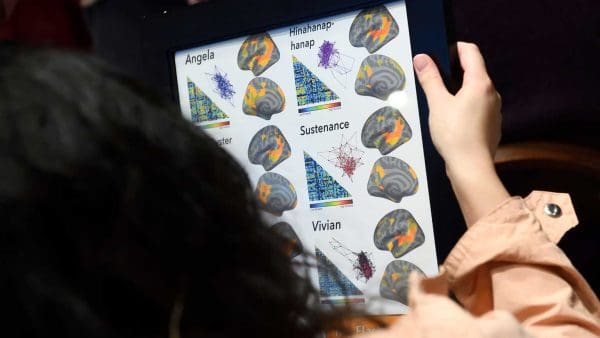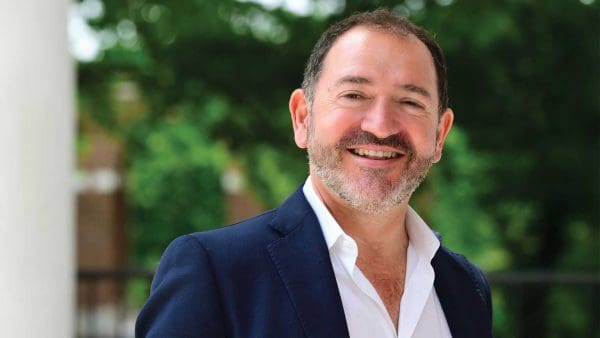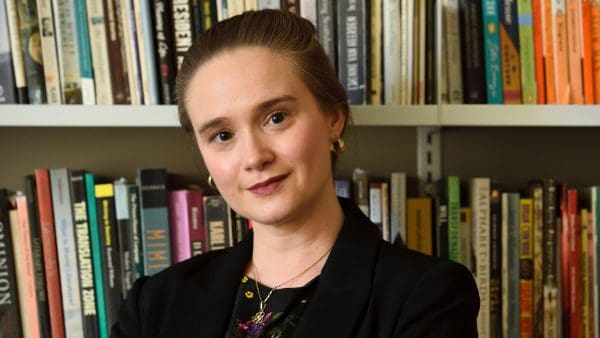
Postdoc Derek Prosser teaching his newly created course Proteins, Genetics, and Human Diseases
Shevaun Lewis, a postdoctoral fellow in the Department of Cognitive Science, is pursuing a career as a research professor. She loves to teach but knew her skills as an instructor needed a little polishing.
Then she learned about a new program at the Krieger School in which science postdocs create their own courses and engage in a workshop where they can enhance their teaching abilities. Established in 2014, the Dean’s Postdoctoral Science Teaching Fellowships has two goals: to offer more small science courses to undergraduates, especially freshmen, and to help postdocs develop their own courses and teaching experience.
“The results have really been positive,” says Joel Schildbach, vice dean for undergraduate education and director of the program. “The undergraduates love the innovative courses, and the postdocs get the opportunity to hone their craft.”
Postdoctoral fellows in the program are required to enroll in a Summer Teaching Institute, sponsored by Johns Hopkins’ Center for Educational Resources. The institute is designed to develop university-level educators by improving classroom teaching and attracting diverse students to all majors.
Lewis’ course was called Born to Talk: Language in the Human Mind and introduced students to the scientific study of language through the lens of human language acquisition.
“The students seemed very interested in the topic,” says Lewis. “The training I got at the Summer Teaching Institute was extremely helpful. I was able to try out various strategies for promoting class engagement and active learning, rather than just relying on lectures.”
Postdoc Derek Prosser designed and taught Proteins, Genetics, and Human Diseases. He said the students’ enthusiasm was the best part for him.
“I designed the course as a combination of lecture and lab sessions, where the lectures focused on the genetics and molecular mechanisms of diseases. In the lab sessions, the students participated in a research project using baker’s yeast as a model for amyotrophic lateral sclerosis,” Prosser says. “The project was one that had never been done anywhere in the world before, and the students obtained new and exciting results that may be directly relevant to our understanding of human disease.”
Titles of other courses included How to Build an iPhone: Physics in Modern Life; and Powering Tomorrow: The Chemistry Behind Alternative Energy.
“Many of these courses are for freshmen, and it’s a great way for them to discover if they want to pursue further study in a particular field of science,” says Schildbach.




